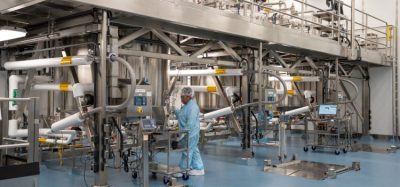Novel colorectal cancer vaccine shows positive phase I results
Posted: 2 May 2019 | European Pharmaceutical Review | No comments yet
A new vaccine for colorectal cancer has proven to be safe in a small sample of human subjects, opening the way for the next phase of testing.


Patients treated during phase I of the clinical trial for the vaccine showed no signs of serious adverse events. The samples of their blood also contained markers of immune activation, which is an early indication that the vaccine could activate immune cells to fight colorectal tumours and metastases.
If it proves effective in larger-scale trials, the vaccine, developed by researchers at Jefferson, could train the patient’s immune system to attack the colon cancer that had already spread before the surgery.
“This pivotal study provides some of the first evidence that it may be possible to safely direct a patient’s own immune system to seek and destroy this cancer type,” said Karen E Knudsen, PhD, EVP of Oncology Services and Director of the Sidney Kimmel Cancer Center – Jefferson Health. “This is a true milestone, made possible through the scientists and clinicians in our colorectal cancer team working in synchrony.”
Tumour vaccines have historically been developed against a sort of molecular sign-post for cancer. Because they come from normal cells, cancer cells share nearly all of the same molecules, making it difficult for the immune system to differentiate normal from cancerous. Tumour antigens are molecules that the immune system can recognise as different from normal. In colorectal cancer, one such molecule (GUCY2C) was identified by Scott Waldman, MD, PhD, the Samuel MV Hamilton Professor and director of the Gastrointestinal Cancer Program of the Sidney Kimmel Cancer Center – Jefferson Health.
The vaccine (developed by first author, Dr Adam Snook, PhD, Assistant Professor in the Department of Pharmacology and Experimental Therapeutics, Dr Waldman and others) works by activating the immune system against the GUCY2C molecule. By joining the GUCY2C molecule with a molecule that boosts the immune reaction called PADRE, and loading it into an adenovirus vector, the researchers engineered a vaccine that could specifically target the colon cancer.
Phase I of the clinical trial enrolled 10 patients with stage I or II colon cancer. Patients were given one dose and came back for blood draws 30, 90, 180 days after immunisation. Patients experienced some discomfort at the injection site, but reported no serious side effects of the vaccine.
The blood samples showed activation of ‘killer T cells’, the immune cell type the researchers had expected. These killer T cells are responsible for finding and killing colon cancer cells that are responsible for causing the cancer to come back.
The results from this phase were published in the Journal for ImmunoTherapy of Cancer.
Further tests to determine if the vaccine is effective at slowing tumour growth are forthcoming: “The goal of the study to begin this fall is to show that version 2.0 of the vaccine is even better and that it may benefit a much bigger group of the overall cancer patient population,” concluded Dr Snook.
Related topics
Clinical Trials, Research & Development (R&D), t-cells, Vaccines









